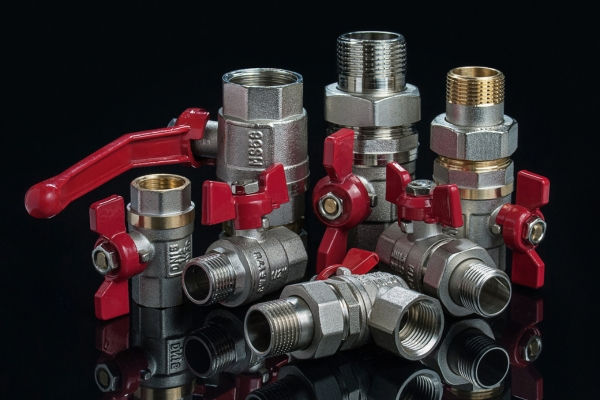Why Tungsten Carbide Surgical Instruments Are Preferred Over Standard Stainless Steel?
- xiongchengcemented
- Mar 19
- 3 min read

When it comes to surgical instruments, precision, durability, and performance are crucial. Over the years, medical professionals have relied on stainless steel tools for surgical procedures. However, tungsten carbide surgical instruments have gained significant popularity due to their superior properties. Interestingly, the same material used in tungsten carbide moulds for industrial applications is now revolutionizing the medical field. But why are these instruments preferred over traditional stainless steel ones? Let's dive into the details.
Understanding Tungsten Carbide
Tungsten carbide is a high-performance alloy composed of tungsten and carbon, known for its extreme durability, wear resistance, and durability. This material is widely used in industrial settings, but its application in surgical instruments is what makes it a game-changer. Unlike stainless steel, tungsten carbide exhibits superior edge retention, corrosion resistance, and longevity, making it an ideal choice for medical tools.
Key Advantages of Tungsten Carbide Surgical Instruments
1. Exceptional Hardness and Durability
Tungsten carbide is significantly harder than stainless steel. This extreme hardness ensures that the cutting edges remain sharp for a much longer period, reducing the need for frequent replacements.
2. Superior Edge Retention
One of the distinctive traits of tungsten carbide instruments is their ability to maintain a sharp edge even after repeated use. This is particularly important for precision procedures where even a slight reduction in sharpness can impact surgical outcomes.
3. Increased Wear Resistance
Surgical tools made from tungsten carbide can withstand extensive use without showing signs of wear. This makes them an excellent investment for medical facilities looking for long-lasting and cost-effective solutions.

4. Corrosion and Rust Resistance
Unlike stainless steel, which may corrode over time, tungsten carbide exhibits high resistance to rust and corrosion. This is especially beneficial in environments where sterilization and moisture exposure are frequent.
5. Enhanced Precision in Surgical Procedures
Precision is critical in surgical procedures. Tungsten carbide tools provide superior control and accuracy, reducing the chance of mistakes and improving patient outcomes.
Common Tungsten Carbide Surgical Instruments
1. Scissors
Tungsten carbide scissors are incredibly sharp and maintain their cutting edge longer than their stainless steel counterparts. They allow for sharp and accurate incisions, which is vital in delicate surgeries.
2. Needle Holders
These instruments offer a strong grip on suturing needles, ensuring precise stitching. The carbide inserts in the jaws prevent slippage, improving surgical efficiency.
3. Forceps
Tungsten carbide forceps provide a firm grip and better control, which is essential for delicate procedures requiring high precision.
4. Surgical Rongeurs
Used for cutting bones and tissues, tungsten carbide rongeurs offer sharpness and durability unmatched by stainless steel alternatives.
Comparing Tungsten Carbide and Stainless Steel Instruments
Feature Tungsten Carbide Stainless Steel
Hardness Extremely hard Moderate
Edge Retention Long-lasting sharpness Dulls over time
Durability High Moderate
Corrosion Resistance Excellent Can corrode
Precision Superior Good
Cost-Effectiveness Long-term savings Frequent replacements needed
Are Tungsten Carbide Surgical Instruments Worth the Investment?
Despite their higher initial cost, tungsten carbide surgical instruments provide long-term benefits, making them a wise investment for medical facilities. Their superior performance, longevity, and reliability make them indispensable in modern surgical practices.
Conclusion
When choosing between tungsten carbide surgical instruments and traditional stainless steel tools, the advantages of tungsten carbide are undeniable. With enhanced durability, precision, and longevity, these instruments have become the top priority for medical professionals. Though they may come at an increased initial expense, their lasting advantages far outweigh the investment, ensuring better surgical outcomes and reduced replacement expenses.
FAQs
1. Are tungsten carbide surgical instruments more expensive than stainless steel ones?
Yes, tungsten carbide instruments are more expensive initially, but their long lifespan and durability make them a cost-effective choice in the long run.
2. Can tungsten carbide surgical instruments be sterilized like stainless steel ones?
Yes, tungsten carbide instruments can withstand standard sterilization processes without losing their strength or sharpness.
3. Do tungsten carbide instruments require special maintenance?
No, they do not require special maintenance beyond standard sterilization and proper handling to maintain their longevity.
4. Why are tungsten carbide scissors preferred in surgeries?
They retain sharpness longer than stainless steel scissors, ensuring precise and clean cuts during procedures.
5. Can tungsten carbide instruments break easily?
While extremely hard, tungsten carbide can be brittle under excessive force, so careful handling is necessary to avoid breakage.
By choosing tungsten carbide surgical instruments, medical professionals can enhance precision, durability, and cost-effectiveness in their practice, making them a superior alternative to standard stainless steel tools.







Comments